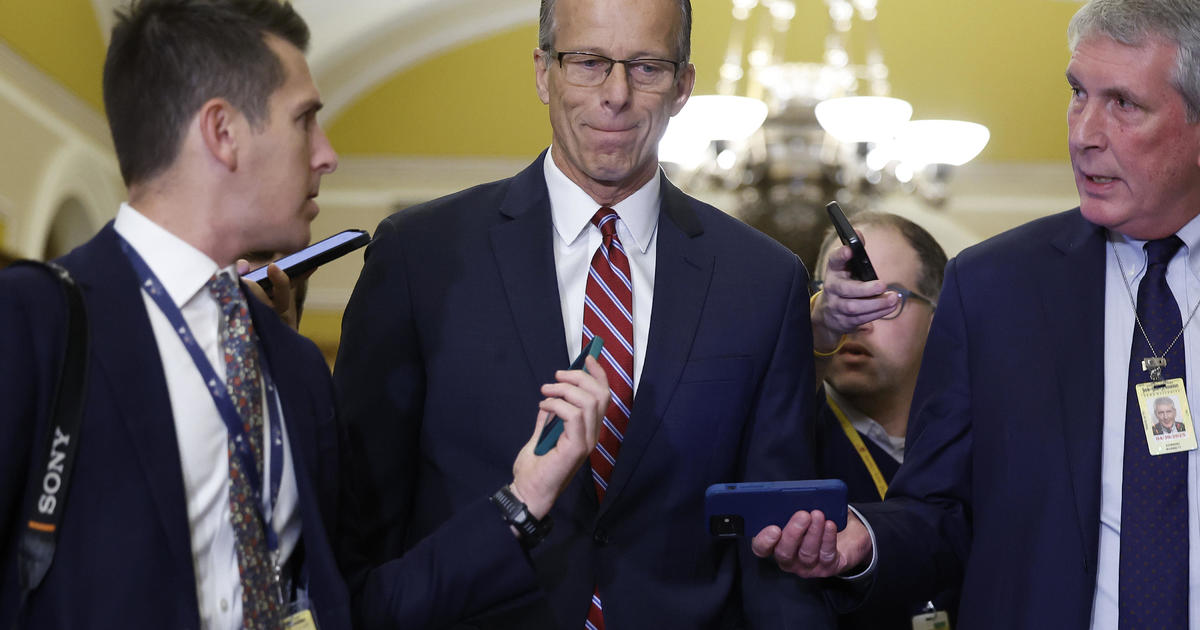Senate Republicans elected Sen. John Thune as their leader on Wednesday, following the decision of Minority Leader Mitch McConnell to step down from the post. Thune, who currently serves as the Whip, emerged victorious after a closely contested election process, winning 29 votes in the second round of voting against Sen. John Cornyn, who received 24 votes. Sen. Rick Scott was eliminated after the first round due to receiving the least number of votes.
The Republican senators held a closed-door meeting on Wednesday morning to cast their secret ballots and elect their new leadership. The three candidates vying for the Senate Republican leader position were in a race overshadowed by the looming presence of President-elect Donald Trump. A majority of the conference, or 27 votes, was required for a candidate to become the leader of the Senate Republicans.
The leadership election took on added significance following the 2024 elections, which saw Republicans regain control of the Senate for the 119th Congress. With the impending return of Trump to the White House and the possibility of Republicans retaining control of the House, the GOP is poised to have a unified government in Washington. This sets the stage for the new Senate leader to collaborate with Trump on a host of legislative priorities.
Although Trump did not officially endorse any candidate in the leadership race, his influence was evident as he demanded the new leader to expedite the confirmation of his nominees. Despite the absence of a formal endorsement, Trump’s base of supporters, known as the MAGA movement, made their preferences clear through a vocal social media campaign in favor of Rick Scott as the leader. They expressed concerns that candidates like Cornyn and Thune may jeopardize Trump’s agenda.
Rick Scott, who was considered the underdog in the race, faced tough competition from Thune and Cornyn, both of whom have extensive experience in leadership roles but have been perceived as less staunch supporters of Trump. Scott previously challenged McConnell for the leadership position in 2022, where he only managed to secure 10 votes.
The outcome of the leadership election signals a potential shift in the direction of the Republican Party, as they prepare to navigate the political landscape under Trump’s leadership once again. The dynamics within the party are likely to evolve as they seek to align their priorities with the incoming administration.
In the aftermath of the election, Sen. John Thune of South Dakota assumes the role of Senate Republican leader, a position that comes with immense responsibility and influence within the party. As he steps into this leadership role, Thune will be tasked with coordinating the legislative agenda of Senate Republicans, negotiating with Democrats, and working closely with President-elect Trump to advance their shared goals.
The transition in leadership marks a new chapter for the Senate Republicans, as they prepare to navigate the challenges and opportunities that lie ahead. The selection of John Thune as their leader reflects a strategic decision by the party to position themselves for success in the upcoming political landscape. With a unified government on the horizon, Senate Republicans are poised to play a pivotal role in shaping the future of the country.
As the dust settles on the leadership election, the focus now shifts to the priorities and agenda that will define the Senate Republicans under the leadership of John Thune. With a new leader at the helm, the party is poised to embark on a new chapter in its history, one that will be shaped by the evolving political dynamics and the demands of governance in the modern era.
The road ahead is fraught with challenges and uncertainties, but with John Thune leading the way, Senate Republicans are poised to navigate the complexities of the political landscape with determination and resolve. As they chart a course for the future, the party will look to Thune for guidance and leadership in the days and months to come.
In conclusion, the election of Sen. John Thune as the Senate Republican leader marks a significant moment in the party’s history. As he takes on this new role, Thune will be tasked with leading the party through a period of transition and change, as they seek to align their priorities with the incoming administration and navigate the complexities of governance in a divided political landscape. With his experience and leadership skills, Thune is well-positioned to guide Senate Republicans through the challenges and opportunities that lie ahead, as they work towards advancing their agenda and serving the interests of the American people.









